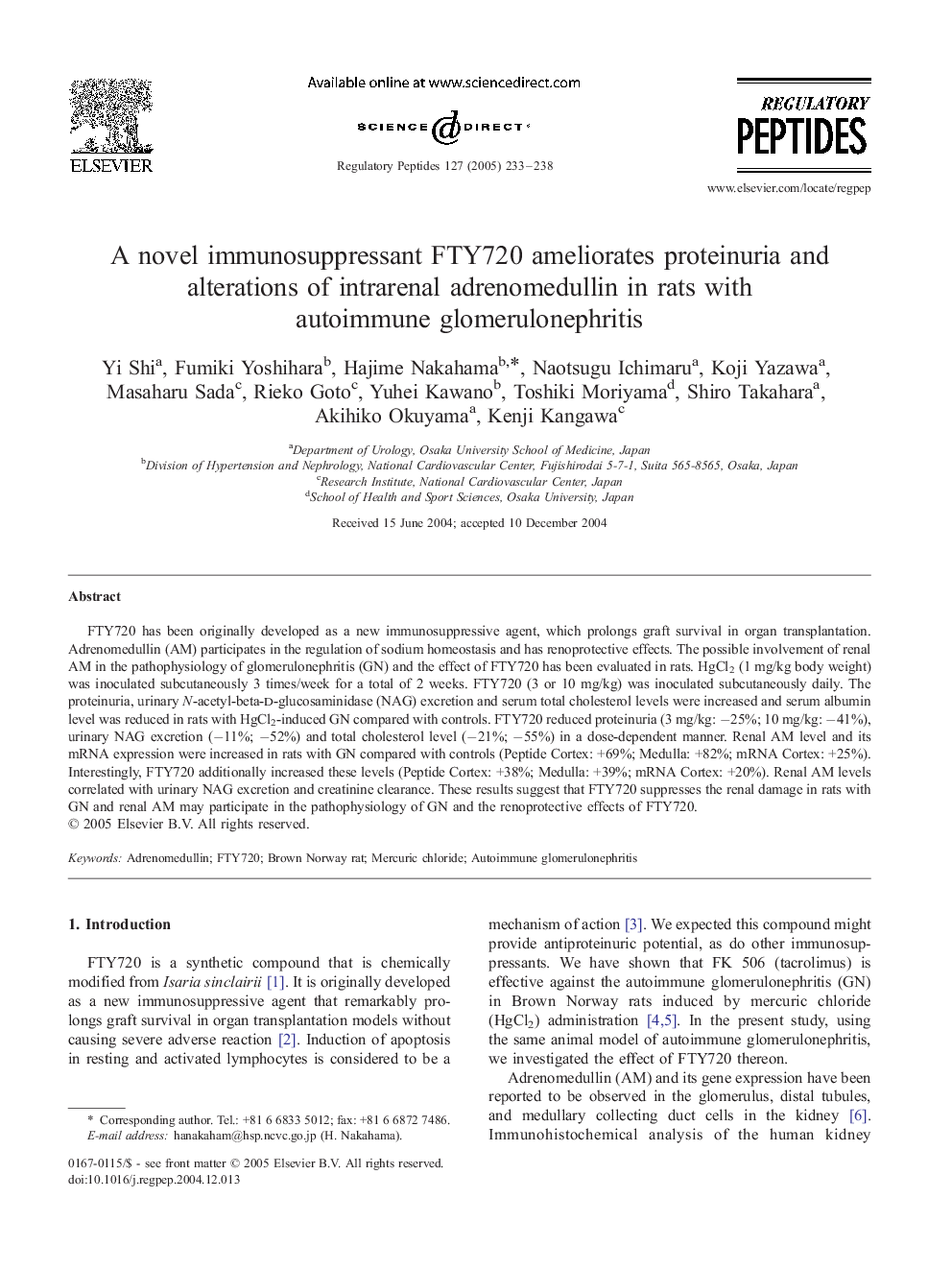| Article ID | Journal | Published Year | Pages | File Type |
|---|---|---|---|---|
| 9894463 | Regulatory Peptides | 2005 | 6 Pages |
Abstract
FTY720 has been originally developed as a new immunosuppressive agent, which prolongs graft survival in organ transplantation. Adrenomedullin (AM) participates in the regulation of sodium homeostasis and has renoprotective effects. The possible involvement of renal AM in the pathophysiology of glomerulonephritis (GN) and the effect of FTY720 has been evaluated in rats. HgCl2 (1 mg/kg body weight) was inoculated subcutaneously 3 times/week for a total of 2 weeks. FTY720 (3 or 10 mg/kg) was inoculated subcutaneously daily. The proteinuria, urinary N-acetyl-beta-d-glucosaminidase (NAG) excretion and serum total cholesterol levels were increased and serum albumin level was reduced in rats with HgCl2-induced GN compared with controls. FTY720 reduced proteinuria (3 mg/kg: â25%; 10 mg/kg: â41%), urinary NAG excretion (â11%; â52%) and total cholesterol level (â21%; â55%) in a dose-dependent manner. Renal AM level and its mRNA expression were increased in rats with GN compared with controls (Peptide Cortex: +69%; Medulla: +82%; mRNA Cortex: +25%). Interestingly, FTY720 additionally increased these levels (Peptide Cortex: +38%; Medulla: +39%; mRNA Cortex: +20%). Renal AM levels correlated with urinary NAG excretion and creatinine clearance. These results suggest that FTY720 suppresses the renal damage in rats with GN and renal AM may participate in the pathophysiology of GN and the renoprotective effects of FTY720.
Related Topics
Life Sciences
Biochemistry, Genetics and Molecular Biology
Biochemistry
Authors
Yi Shi, Fumiki Yoshihara, Hajime Nakahama, Naotsugu Ichimaru, Koji Yazawa, Masaharu Sada, Rieko Goto, Yuhei Kawano, Toshiki Moriyama, Shiro Takahara, Akihiko Okuyama, Kenji Kangawa,
